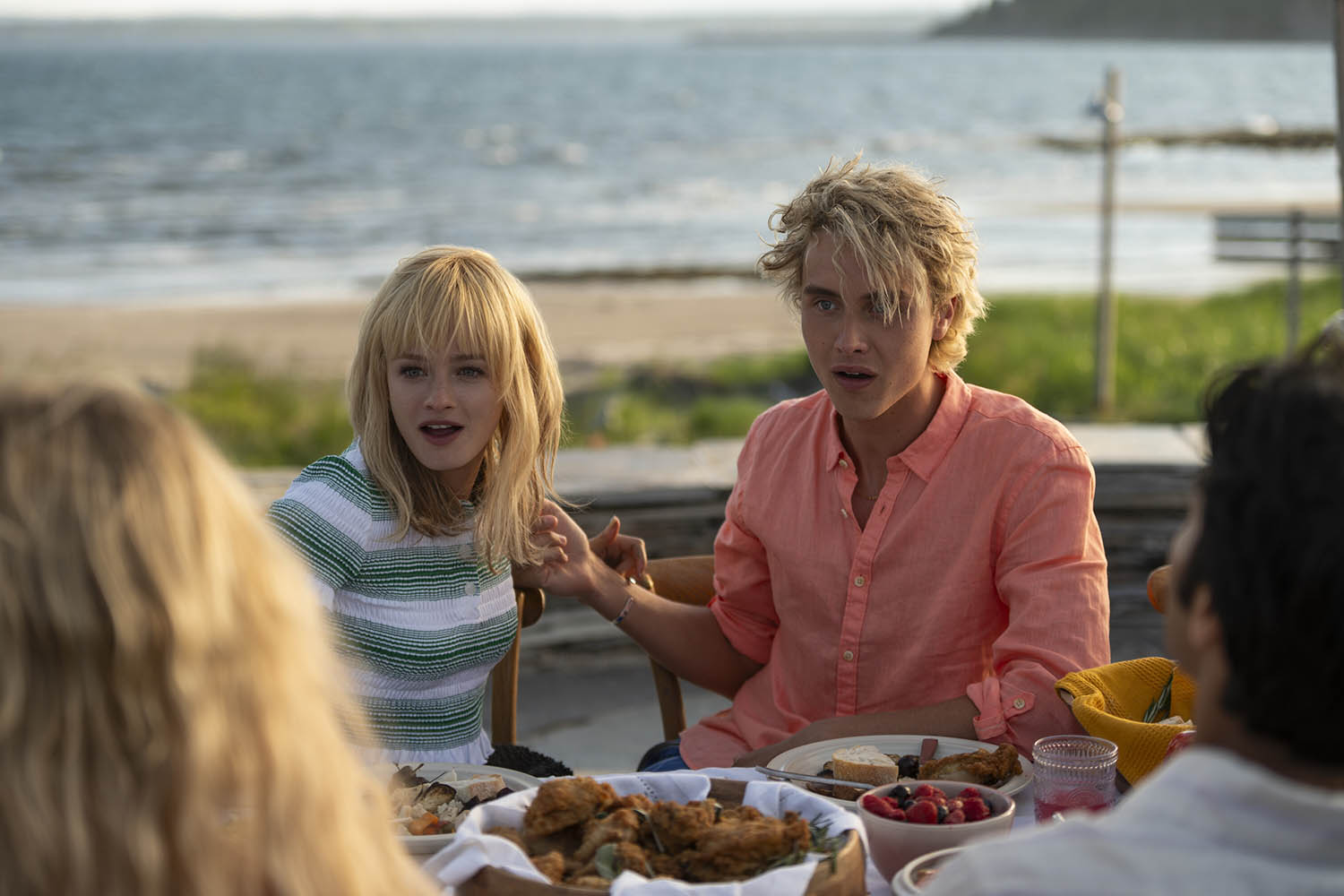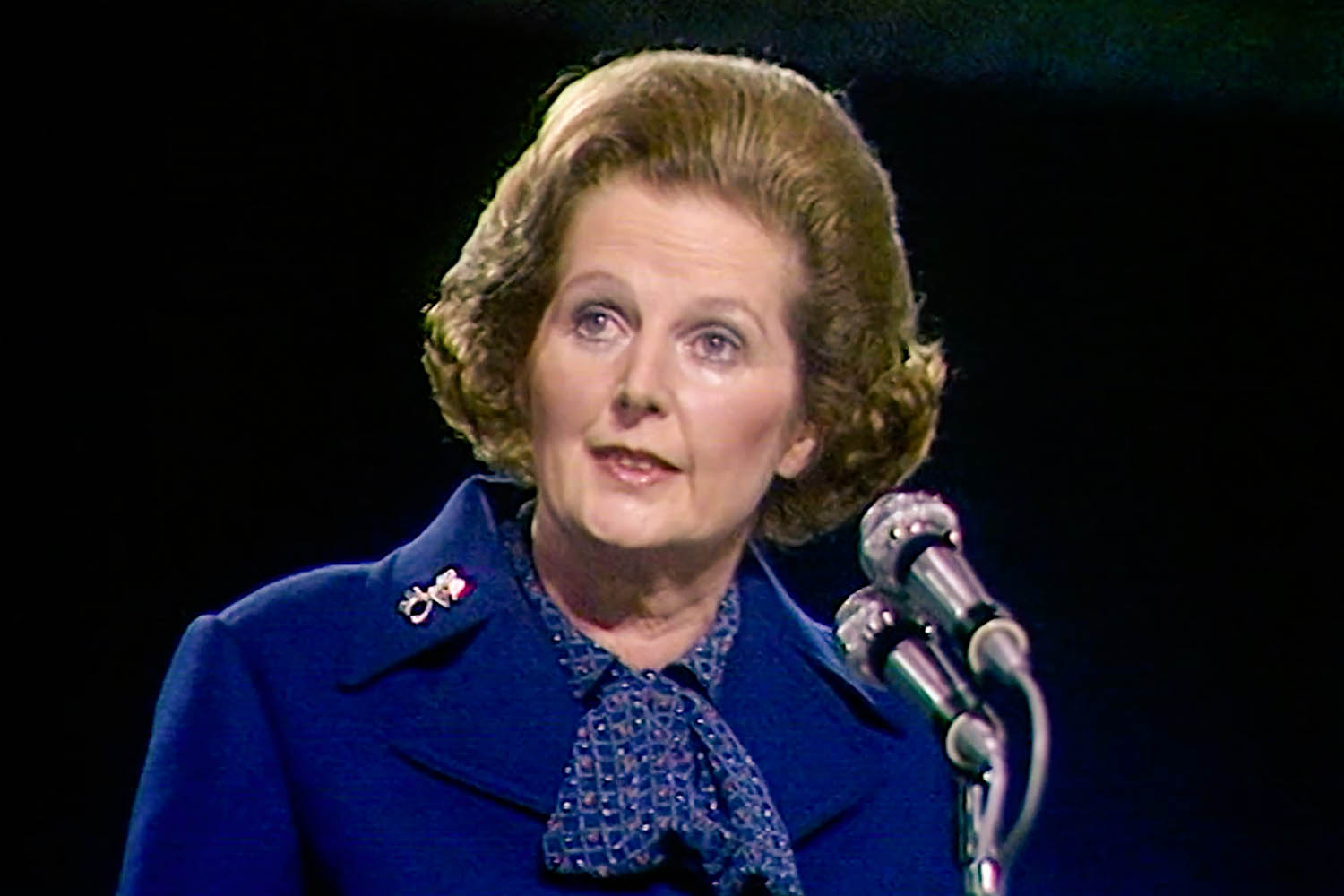Adam Curtis’s sprawling, knowingly abstract documentaries (including 2016’s HyperNormalisation and 2021’s Can’t Get You Out of My Head) have evolved into something of a cultural litmus test. People watch them, or they try to (his last docuseries, 2022’s Russia 1985-1999: TraumaZone, about the collapse of the Soviet Union, was a bracing seven hours), and tend to either hail him as a card-carrying genius only they can understand, or deride him as a grifting charlatan only they can see through.
For an oeuvre so committed to forensically explaining societal ruptures, Curtis’s work is itself inherently divisive. Something about the way he operates – lacing together old clips, rare footage, songs, moods, moments, and counterculture psychodrama to form a kind of spooling tapestry of thought, history, memory, dream, conjecture and, at times, outright sociopolitical alarmism – tends to really get to people, in positive and negative ways.
His new project, Shifty (BBC iPlayer), is in five parts and is entirely devoted to the agony and the glory, the triumph and the blushing mortification that is endgame 20th-century Britain, working chronologically from the 1980s to the new millennium. It opens with a clip of then prime minister Margaret Thatcher inviting BBC DJ Jimmy Savile – now known to be a serial rapist and paedophile – through a door inside No 10 with some children. It ends with the famous clip of David Bowie rhapsodising about the potential of the internet and a rowdy burst of Absolute Beginners.
In between, there is Curtis’s patented audiovisual tsunami of painstakingly sourced clips that at times feels overwhelming and a little repetitive. (Thatcher was a big political beast of the era, but that doesn’t mean every episode has to be practically wallpapered with her.)
Some emerging patterns prove compelling or upsetting: the last gasps of empire, monetarism, the Troubles, banks, racism, Aids, punks, riots, protests
Some emerging patterns prove compelling or upsetting: the last gasps of empire, monetarism, the Troubles, banks, racism, Aids, punks, riots, protests
Some emerging patterns prove compelling or upsetting (the last gasps of empire, monetarism, the Troubles, banks, racism, Aids, punks, riots, protests). At other times, the footage is everything from touching (miners washing off grime, people bopping at a house party) to amusing (an “air guitar club”, the late 6th Duke of Westminster scarfing down a meal on a tray in front of the TV). Towards the end, New Labour appears and it’s a jolt to see how young – and strangely innocent – Tony Blair and Gordon Brown look.
As always with Curtis’s work, there’s a complicated overarching message to Shifty: about gigantic power shifts, the collapse of industry, the implosion of community, the power play of nostalgia, intrinsically self-interested politicians and hyper-individualism.
That’s a lot. Too much? One problem with Curtis’s long-form projects is that sometimes they’re fascinating and other times you feel like you’re doom-scrolling the telly. Or that you’re Malcolm McDowell in the scene from A Clockwork Orange where his eyes are clamped open. One change is that Curtis’s trademark voiceover has been replaced with chunky text: “There come moments in society when foundations of power begin to move…” Later, the text becomes more pointed: “When Britain was powerful, it could hide its dark secrets and cruelties.” And so on.

‘Sun-drenched’: Esther McGregor and Joseph Zada in We Were Liars on Amazon Prime Video.
This – the pushing of the viewer to adopt Curtis’s own position – is where Shifty is weakest. It’s stronger in the lighter moments, leading the audience through what feels like the parallel history of the eccentricity and vulnerability of British people. The whole is interesting, though, and there are discernible patterns, structures, messages, even if you don’t care for them.
If you’re in the market for a teenage Big Little Lies-esque vibe, amble over to Amazon Prime Video for We Were Liars, a hazy summertime thriller adapted from the bestselling 2014 E Lockhart YA novel. It opens with teenager Cadence (Emily Alyn Lind) lying dishevelled on a dark moody beach near a grand house. “Something terrible happened last summer,” she breathes heavily in voiceover, “and I have no memory of who or what hurt me.”
So far, so teen noir. In extended flashbacks, we are transported back to “summer 16”, before the “terrible thing” happened, and some highly convenient head injury-induced amnesia obliterated Cadence’s memory. We discover that she is part of a wealthy extended family described as “American royalty”. They spend summers on their private island in the Martha’s Vineyard area, a romance is blossoming for Cadence and everything is blissful.
Newsletters
Choose the newsletters you want to receive
View more
For information about how The Observer protects your data, read our Privacy Policy
Cadence’s teenage gang (the titular “liars”) are also blond and beautiful. They keep semaphoring their carefree lives by doing tiresome things such as jumping into water with all their clothes on. The adults around them are screwed up: one of them is a conservative trad wife, another swigs back the wine too quickly. Someone comments sourly about the “fucked-up family Olympics”.
We Were Liars has a second time zone, “summer 17”, set after the terrible thing happens. You can tell them apart because summer 16 Cadence has shiny blond hair, while summer 17 Cadence is lumbered with black, lank emo hair (if you ever want to know where you are in a multi-time-zone teen thriller, just follow the follicles). Three episodes into the total eight, We Were Liars is proving to be intense, camp, shamelessly frothy – it makes Gossip Girl look like Chekhov – and it just may light up the summer.
There’s just room to drop in on Pushers, the new six-part Channel 4 comedy starring Rosie Jones, the comedian and disability activist (she has cerebral palsy). Co-created and written by Jones and Peter Fellows – it started life as a comedy short – Pushers has a neat conceit: sick of being skint and patronised, a group of people with disabilities form a gang to deal drugs.
It’s a tad rough and ready, but the two episodes I watch cheekily spoof Breaking Bad, The Wire and Top Boy (Jones riding around menacingly on her disability tricycle), and there are enough silly lines (“Name me one person who’s ever died of drugs”) to make it worth your time.
Shifty is on BBC iPlayer; We Were Liars is streaming on Amazon Prime Video; Pushers is on Channel 4
Photographs by BBC/Jessie Redmond/Kevin Baker

